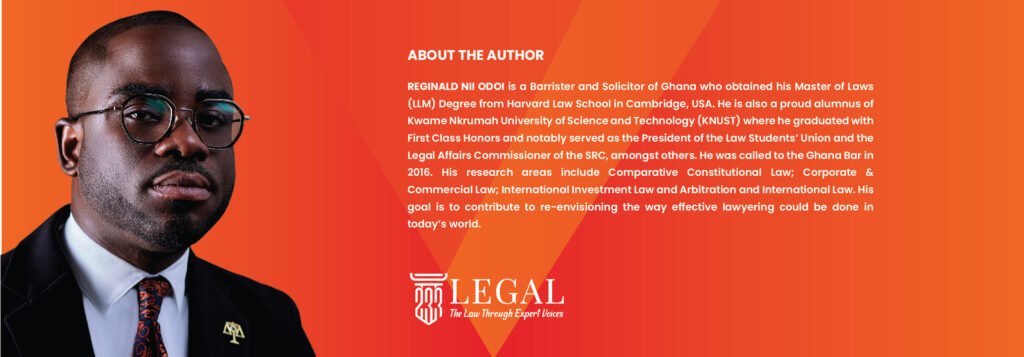

Introduction
“Where two parties have made a contract which one of them has broken, the damages which the other party ought to receive in respect of such breach of contract should be such as may fairly and reasonably be considered either arising naturally according to the usual course of things, from such breach of contract itself, or such as may reasonably be supposed to have been in the contemplation of both parties, at the time they made the contract, as the probable result of the breach of it…”
An action for damages is the most general remedy recognized by the common law with the primary purpose of compensating an innocent party for the guilty party’s breach of contract so far as money can do so. Contract law does not seek to punish when awarding damages. Far from it! Rather, contract law’s goal when awarding damages is to provide compensation to the innocent party and nothing more. Damages is an obvious remedy for breach of contract whether the breach takes the form of a breach of a promise to do something or a breach of a promissory representation that a certain state of affairs exists. Broadly speaking, the action for damages lies for non-performance and for defective performance. When an innocent party has sustained no loss from the breach, he or she will still be entitled to damages, only that he would be entitled to nominal damages i.e. damages which recognize that he has had a legal right infringed upon. However, if he has sustained loss, the innocent party is entitled to substantial damages. These are calculated according to rules laid down by the Superior Courts of judicature in Ghana which shall be discussed below.
Injured party to be placed in same financial position as if contract had been performed
As highlighted above, the general principle of contract law is that the innocent party is entitled to damages for his loss. However, losses may be of various kinds. In particular, there is a clear distinction between a loss of an expectation and an actual loss which has resulted from action in reliance of the contract. Prima facie, the innocent party is entitled to full damages for his lost expectations in that he is entitled to be placed by damages in the position in which he would have been in if the contract had been fully performed. The main objective of the courts in awarding damages is to place the injured or innocent party, as far as money can, in the position that he or she would have been in if the breach had not occurred i.e. if the contract had been performed. Thus, in the Royal Dutch Airlines (KLM) and another v Farmex [1989-1990] 2 GLR 632, the Supreme Court held per Adade Ag. CJ that, “on the measure of damages for breach of contract, the principle adopted by the courts was restitution in integrum, i.e. if the plaintiff has suffered damage not too remote he must, as far as money could do it, be restored to the position he would have been in had that particular damage not occurred. What was required to put the plaintiffs in the position they would have been in was sufficient money to compensate them for what they had lost.”
Damages must be such as may be fairly and reasonably considered as arising naturally from the breach
Subject to the preceding rule is the fact that damages must be such as may be fairly and reasonably considered as arising naturally, according to the usual course of things, from the breach. In other words, damages would not be recoverable if it is deemed as too remote. Damages which are not too remote are those which are deemed as arising naturally. These are referred to as general damages and are recoverable because they are the natural result of the breach of contract and are reasonably foreseeable as the likely result of the breach. Furthermore, they refer to damages that is reasonably supposed to have been in the contemplation of both parties at the time they made the contract as the probable result of the breach of it. These are referred to as special damages since they arise from special or exceptional circumstances outside the ordinary course of things. A guilty person is liable for such losses only if the loss could reasonably be supposed to have been within the contemplation of the guilty party as likely to result from the breach of contract. In order to test the remoteness of damages, the Superior Courts of Ghana in reliance on the principles formulated in Hadley v Baxendale (1854) 9 Exch. 341 consider the knowledge possessed by the party who commits the breach (be it imputed or actual).
The fact that damages are difficult to assess does not prevent the injured party from recovering them
The notion that damages must be precisely quantifiable to be recoverable is a misconception. In reality, the Superior Courts in Ghana acknowledge that assessing damages can be inherently challenging, particularly in complex cases involving intangible losses. Despite these difficulties, the injured party’s right to compensation remains intact. In some of these instances, damages may be awarded even where there is neither benefit nor detrimental reliance. The court’s primary concern is to ensure that the claimant receives fair and reasonable compensation for their losses, rather than striving for mathematical precision. In cases where damages are difficult to assess, courts employ various approaches to determine a reasonable award. For instance, they may rely on expert testimony, industry benchmarks, or statistical analysis to estimate the extent of the loss. The principle of restitutio in integrum guides the court’s decision-making process, aiming to restore the claimant to their pre-breach position as closely as possible. This was exemplified in the Supreme Court case of Moses Okrah v Agricultural Development Bank Civil Appeal No. J4/58/2016. The flexibility in assessing damages recognizes that contractual breaches can have far-reaching and unpredictable consequences. By allowing for reasonable approximations, courts provide justice and accountability, even in situations where exact calculation is impossible. This underscores the importance of fairness and equity in the legal system, ensuring that the injured party’s rights are protected and their losses are adequately compensated. Ultimately, the court’s willingness to adapt to complex situations ensures that justice is served, even when damages are difficult to quantify.
Mitigation of Losses/Damages
The Superior Courts in Ghana emphasize that it is the duty of the injured person to minimize the damages. Though the general rule of damages is that compensation would be awarded for pecuniary losses naturally flowing from the breach, this first principle is qualified by a second which imposes on a claimant the duty of taking all reasonable steps to mitigate the loss consequent on the breach, and debars him from claiming any part of the damage which is due to his neglect to take such steps. The reason for this rule is that the injured party can recover no more than he would have suffered if he had acted responsible, because any further damages do not reasonably flow from the defendant’s breach. The issue of mitigation is very important when it comes to anticipatory breaches.
In Societe Generale De Compensation v Moshie Ackerman [1972] 1 GLR 413-435, the Supreme Court emphasized this rule by stating that, “the measure of damages for wrongful dismissal is the loss thereby incurred; and subject to the duty of a plaintiff to mitigate his loss, it will normally be the amount of wages due and payable for the agreed period of service inclusive of any other benefit to which he is entitled by virtue of the contract. Steps to be taken by a plaintiff in mitigating his loss is a question of fact not of law; and the burden of proof is on a defendant not on a plaintiff who, in the instant case being a senior executive, is under no legal obligation to accept an alternative appointment involving a considerable reduction in status.”
Furthermore, in the Supreme Court case of Delmas Agency Ghana Ltd v Food Distributors International Ltd [2007-2008] SCGLR 748, the Supreme Court per Sophia Adinyira JSC stated that “in assessment of damages a court has to take into account whatever the plaintiff has done or has the means of doing to minimize his loss.” She further stated on the issue of mitigating losses or damages that “where a plaintiff incurs loss or expense by taking reasonable steps to mitigate the loss resulting from the defendant’s breach the plaintiff may recover this further loss or expense from the defendant…the fact that the respondent would have incurred extra losses did not absolve it from mitigating its losses. From the evidence I find that the appellant has been able to discharge the onus that the respondent could have reasonably minimized its losses but it refused.”
If the parties agree the damages for breach of any part of the contract, no more than the agreed sum can be recovered
The Superior Courts of judicature in Ghana further emphasize as a matter of principle, when awarding damages, that where the damages are fixed and ascertained by the parties in the contract as a liquidated damages clause, no more than the agreed sum can be recovered provided the liquidated damages clause is not struck down as a penalty provision. An agreement of this sort is in principle valid and unobjectionable because there is no reason why the parties should not attempt to save legal costs by assessing, in advance, the compensation which will be payable in the event of breach, and the amount that can then be sued for as an agreed sum. These clauses purport to establish a predetermined amount of damages payable by a party in breach of contract, ostensibly to provide certainty and avoid the difficulty of providing actual damages. By establishing a predetermined amount of damages, parties can avoid uncertainty and expense of litigation as well as allocate risk in a more efficient manner.
Conclusion
In conclusion, in Ghana, breach of contractual obligations can result in significant losses for the injured party. The law of damages provides a vital mechanism for compensating these losses, ensuring that the aggrieved party is restored to their pre-breach position. This essay examines the principles and practices governing damages awards in Ghana, with a focus on compensating loss arising from breach of contractual obligations. This essay analyzes the principles guiding the award of damages, such as causation, remoteness, and mitigation. It further discusses the challenges in assessing damages, particularly in cases involving intangible losses or complex contractual breaches. Ghana’s legal framework, drawing from common law principles and statutory provisions, provides a foundation for damages awards. While the law of damages in Ghana provides a robust framework for compensating losses, there are areas for improvement. There is the need for clarity and consistency in the application of damages principles by the courts, particularly in cases involving novel or complex breaches. By examining the Ghanaian experience, this essay contributes to the broader discussion on the role of damages in contractual disputes and the importance of effective remedies in promoting contractual compliance.
God bless!












